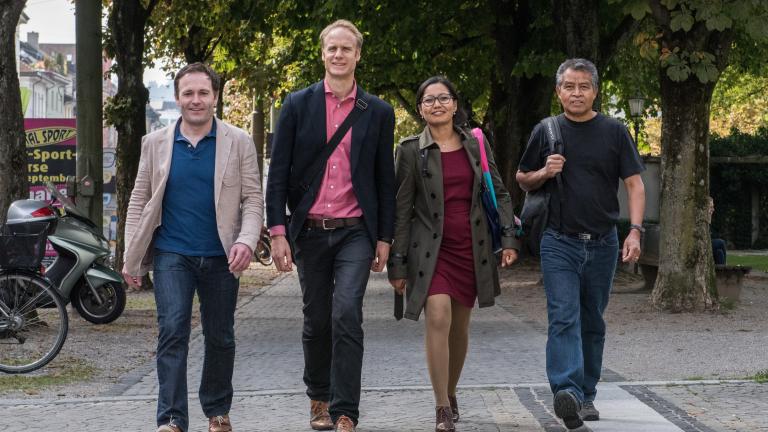
ClimateRe is bringing agricultural insurance and improved community-based projects to Nepal. ClimateRe was founded in 2015 by Climate CoLab “Absorbing Climate Impacts 2018” contest winners Juna Shrestha and Benjamin Huber; although, the initiative is now run by an interdisciplinary team.
ClimateRe is designed as a pragmatic, holistic approach to mitigating climate and social justice issues within rice agriculture. Traditional insurance does not address many of the issues rice farmers in Nepal are facing, such as market risks and extreme weather. Shrestha comments, “The current agriculture insurance schemes are rarely a success because not enough attention is given to the needs of the farmers.” In Nepal, 75% of the population works in rice cultivation. On average, rice farming brings in $1.28 a day per person.With recent impacts of climate change, including drought and soil degradation, increased efforts are needed to help rice farmers. In addition to challenges such as natural disasters and extreme weather, Nepalese farmers often lack access to fair marketplaces to sell their crops, and face issues such as market monopolies and predatory pricing policies. Further, economic issues associated with their trade-- issues such as political tension, health, and unstable weather also impact agriculture in Nepal.
ClimateRe aims ease the hardships felt by Nepalese rice farmers by pairing crop insurance and climate change adaptation strategies. According to Shrestha, ”based on the results of risk perception study among the Nepalese rice farmers we carried out at the end of 2016, we focused towards a more holistic approach and link crop insurance to value chain development and climate change adaptation.” There are three work packages within the ClimateRe climate resilience model. The first is taking climate resilient rice cultivation measures, such as developing reliable irrigation, healthier seeds, and fertilizers.The second is value chain development for rice, such as labor support and interventions that make the marketplace more fair. Last, there is a two-tiered insurance system, based on yield loss. Juna Shrestha and Benjamin Huber describe these initiatives as a “climate toolbox”; a set of skills and resources that help mitigate climate change’s negative impacts on their agricultural yield and community.
ClimateRe also emphasizes the participation of farmer cooperatives and farmers within the system. Farming cooperatives will implement and manage this community-based insurance scheme, and train other farmers in mitigation techniques. ClimateRe also seeks to address social issues of inequality within rice agriculture, such as the exclusion of women and Dalits (the lower caste), by reserving 50% of the project participation tasks for members of those groups.
Since winning the Climate CoLab contest, ClimateRe has gained visibility globally. In describing the future of the project, Shrestha states: “Currently, we are planning and setting project milestones. We are also in discussions with potential partners and collaborators. In October, we will go to Nepal to set up the project and will carry out stakeholder meetings and a preliminary information and data collection. Besides, we are working to develop a sustainable business model for the ClimateRe concept, which would allow it to scale up the concept to wider regions and other beneficiary groups.”






